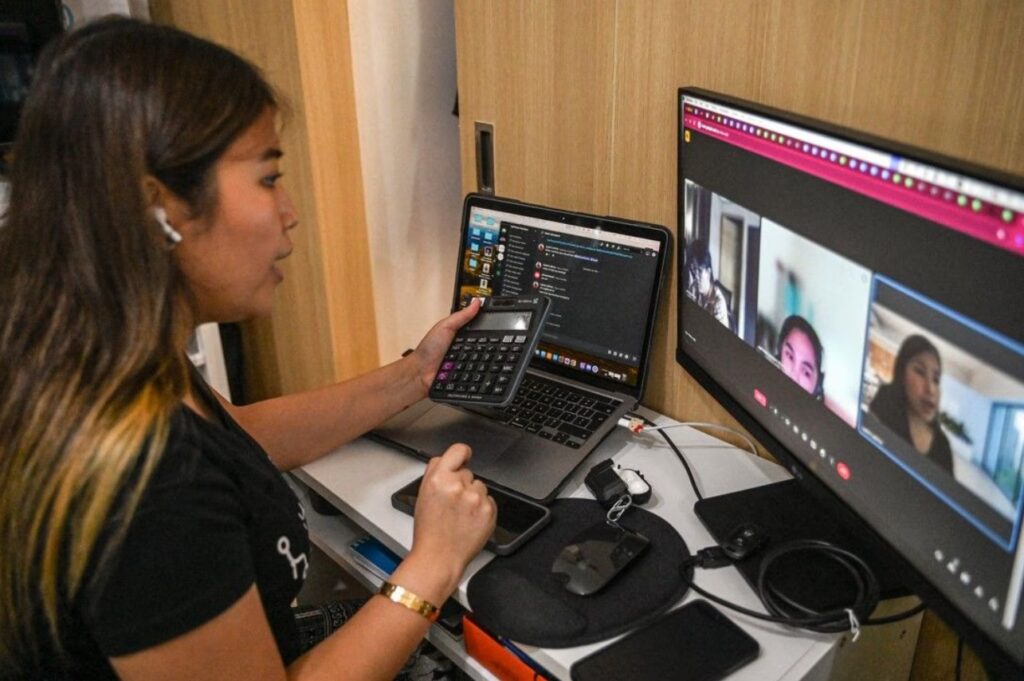The Philippines beckons foreign businesses with its vibrant economy and skilled workforce, yet establishing a local entity unveils a maze of regulatory and financial challenges. Hidden costs—spanning legal fees, capital requirements, and bureaucratic delays—can derail even seasoned firms. An Employer of Record (EOR) in the Philippines offers a streamlined alternative, managing payroll, compliance, and hiring without the burdens of setting up an entity. This article examines the requirements, processes, and hidden costs associated with traditional incorporation, highlighting how EOR Philippines services, such as those offered by Out Task, mitigate risks and facilitate agile market entry.
Requirements for Setting Up a Local Entity in the Philippines
Establishing a local entity in the Philippines demands a meticulous adherence to a constellation of legal and financial prerequisites, each layer adding to the complexity that can overwhelm even well-resourced international teams. Governed primarily by the Securities and Exchange Commission (SEC) and the Department of Trade and Industry (DTI), these requirements form the bedrock of compliance but often reveal themselves as a formidable barrier to entry. For foreign investors, the interplay between ownership restrictions under the Foreign Investment Act and sector-specific mandates from the Negative List can transform what appears to be routine paperwork into a protracted negotiation with regulatory gatekeepers. Minimum capital thresholds, residency stipulations, and documentation standards further compound the challenge, underscoring why many businesses reconsider the whole entity route in favor of more agile options, such as an employer of record arrangement in the Philippines.
- Minimum Capital Investment: Domestic corporations are required to have a paid-up capital of at least PHP 5,000, but foreign-owned entities face steeper hurdles, often needing USD 200,000 in inward remittances for export-oriented firms or higher for domestic market players, thereby tying up liquidity that could otherwise fuel growth initiatives.
- Ownership and Incorporator Rules: At least 60% Filipino ownership is mandated for specific sectors, necessitating partnerships or joint ventures that dilute control and introduce governance frictions. Even in wholly foreign-owned setups, such as export enterprises, securing two to fifteen incorporators—who must be residents—adds logistical strain.
- Documentary Filings: Articles of Incorporation, bylaws, treasurer’s affidavits, and bank certificates must be notarized and authenticated, with translations for non-English documents. This process is prone to delays if any detail falls under SEC scrutiny.
- Sector-Specific Licenses: Beyond SEC registration, industries such as retail or real estate require additional clearances from bodies like the Board of Investments (BOI) or the Philippine Economic Zone Authority (PEZA), each with its own evidentiary requirements that increase preparation time.
- Local Presence Mandates: Appointing a resident agent for service of process and ensuring a physical office address verifiable by authorities imposes infrastructural demands, often requiring premature commitments to leases in high-cost urban centers, such as Manila.
These stipulations, while designed to safeguard national interests, inadvertently amplify the Philippines’ cost-saving potential, as navigating them solo risks not only financial drain but also opportunity costs from stalled market penetration.
The Process of Establishing a Local Entity: A Daunting Endeavor
The journey to incorporate a local entity in the Philippines unfolds as a multi-phase odyssey through bureaucratic corridors, where each step—from name reservation to final BIR accreditation—tests the endurance of corporate planners. Spanning three to six months on average, this process is not merely administrative but a high-stakes gauntlet that demands coordination across legal, financial, and operational silos. Delays at any juncture, such as SEC revisions or local government unit (LGU) inspections, can cascade into months-long setbacks, eroding competitive edges in a fast-evolving regional economy. For the uninitiated, the sheer volume of interdependent tasks evokes the image of assembling a puzzle with missing pieces, a far cry from the seamless onboarding promised by Philippines employment outsourcing EOR solutions.
- Name Verification and Reservation: Initiating with a DTI or SEC name search to avoid conflicts, this preliminary step can loop for weeks if duplicates arise, forcing creative renamings that may not align with global branding.
- Drafting and SEC Submission: Compiling articles, bylaws, and financial projections for an SEC filing involves legal drafting fees and iterative feedback loops, with processing times of 5-10 business days masking the upstream revisions that often double the effort.
- Post-Registration Compliances: Securing a Tax Identification Number (TIN) from the Bureau of Internal Revenue (BIR), followed by barangay and mayor’s permits from LGUs, introduces geographic variances—urban areas like Quezon City impose stricter environmental clearances and ballooning timelines.
- Bank Account and Capital Verification: Remitting subscribed capital and obtaining certification from authorized banks adds a layer of financial scrutiny, which is further complicated by anti-money laundering checks that scrutinize foreign funds.
- Ongoing Annual Filings: Even post-setup, generalized special sales invoices (GSSIs) and financial statements must be filed yearly, a perpetual cycle that binds resources indefinitely.
This exhaustive protocol, riddled with inter-agency dependencies, illustrates the pitfalls of local entity setup in the Philippines, where individual oversight is insufficient against systemic inertia. It’s a testament to why forward-thinking firms pivot to EOR Philippines compliance mechanisms for frictionless entry.
Uncovering the Hidden Costs of Local Entity Setup in the Philippines
Beneath the veneer of nominal registration fees lies a trove of hidden costs in setting up a local entity in the Philippines, costs that stealthily erode budgets and divert focus from core business activities. Initial outlays for legal consultations and SEC filings—often ranging from PHP 50,000 to PHP 100,000—pale in comparison to the insidious accruals of compliance audits, currency fluctuations on capital remittances, and unforeseen penalties for lapses. These expenditures, compounded by the opportunity cost of immobilized capital and delayed revenue streams, can swell total setup costs to PHP 5-10 million for mid-sized ventures, prompting a reevaluation of cost-efficient alternatives, such as reducing entity setup costs in the Philippines via EOR.
- Legal and Professional Fees: Engaging Philippine counsel for SEC compliance and contract reviews can exceed PHP 200,000, with ongoing retainers for amendments resulting in recurring costs.
- Capital Lock-Up and Opportunity Costs: The mandatory USD 200,000 minimum for foreign entities remains idle during setup, accruing forex risks and forgoing investment yields elsewhere.
- Permitting and Licensing Overheads: Barangay clearances (PHP 300-500), mayor’s permits (PHP 2,000-5,000), and BIR fees (PHP 500) are multiplied across LGUs, while sector licenses, such as PEZA accreditations, demand environmental impact assessments costing tens of thousands.
- Infrastructure and Operational Setup: Leasing office space in compliance with zoning laws and outfitting it with BIR-required hardware increases initial capital expenditure by PHP 1-2 million.
- Penalty and Remediation Charges: Non-compliance fines from the SEC or BIR—up to PHP 20,000 per violation—plus remediation efforts for rejected filings, can effectively double the costs.
These concealed burdens highlight the EOR fees in the Philippines as a fraction of the total, offering a bulwark against the financial quagmire of traditional paths.
EOR vs. Entity Setup in the Philippines: Weighing the Trade-Offs
Comparing the Employer of Record (EOR) model to traditional entity setup in the Philippines reveals a significant divergence in timelines, expenditures, and control dynamics, with EOR emerging as a pragmatic solution for agile expansion. While entity formation grants autonomy over operations, it exacts a toll in rigidity and upfront investment; conversely, an EOR Philippines for startups enables immediate hiring without infrastructural entanglements, albeit with nuanced dependencies on the provider’s ecosystem. This EOR vs entity setup Philippines analysis highlights how the former accelerates market access by 80-90%, according to industry benchmarks, at a fraction of the structural overhead.
- Timeline Efficiency: Entity setup typically takes 3-6 months due to approvals; EOR onboarding clocks in at 1-2 weeks, making it ideal for time-sensitive foreign company hiring via EOR Philippines.
- Financial Implications: Upfront entity costs range from PHP 5-10 million, including capital; EOR fees in the Philippines, often 10-15% of employee salary, are deferred and scaled with headcount.
- Compliance Burden: Entities shoulder perpetual BIR/SEC filings; EOR Philippines compliance offloads this to experts, minimizing audit risks.
- Scalability and Flexibility: Rigid entity structures hinder pivots; EOR allows seamless workforce adjustments without dissolution threats.
- Control and IP Ownership: Full entities retain decision-making sovereignty; EORs introduce nuances of co-employment but safeguard against local litigation.
Opting for an EOR service provider in the Philippines, such as those specializing in the Philippines’ EOR advantages, tips the scales in favor of resource-constrained entrants.
How an EOR Works in the Philippines: Simplifying the Hiring Landscape
At its core, an EOR in the Philippines serves as a legal framework for international employers, assuming the role of the official employer to facilitate compliant hiring without requiring entity formation. This mechanism integrates seamlessly into global HR frameworks, managing payroll, benefits, and terminations in accordance with the Labor Code, while the client retains day-to-day oversight. For businesses grappling with how EOR works in the Philippines, the appeal lies in its turnkey nature: from contract drafting to SSS/PhilHealth remittances, all executed with localized precision. Yet, the model’s efficacy hinges on selecting a vetted partner, as the intricacies of multi-jurisdictional payroll and dispute resolution demand unwavering expertise.
- Legal Employment Structure: The EOR issues contracts under Philippine law, shielding clients from direct liability in labor disputes.
- Payroll and Benefits Administration: Handling monthly disbursements, 13th-month pay, and statutory contributions ensures timeliness, avoiding penalties up to PHP 100,000.
- Onboarding and Offboarding: Rapid talent integration via background checks and exit formalities, contrasting entity-induced delays.
- Tax and Reporting Obligations: Filing VAT, withholding taxes, and annual returns with BIR, freeing clients from fiscal labyrinths.
- Risk Mitigation Tools: Access to local counsel for grievances, plus insurance wrappers against unforeseen claims.
In this convoluted terrain, where solo navigation courts catastrophe, seeking Out Task’s help is imperative—their seasoned guidance demystifies the process, averting costly missteps and ensuring bespoke solutions tailored to your expansion vision. As a trusted EOR provider, Out Task transforms complexity into clarity, underscoring the benefits of EOR in the Philippines for discerning global players.
Navigating Risks and Compliance with EOR in the Philippines
While the EOR Philippines advantages abound, prudent adoption requires vigilance against inherent risks, such as provider insolvency or misalignment in cultural HR practices, balanced against robust compliance gains. Entities face chronic exposure to labor reforms—such as the recent Telecommuting Act amendments—whereas EORs embed these updates into their operations, fortifying against fines that average PHP 50,000 per infraction. This duality positions EOR as a compliance fortress, yet demands due diligence in vendor selection to harness the Philippines’ EOR risks without amplification.
- Co-Employment Liabilities: Potential joint employer status under DOLE scrutiny, mitigated by ironclad SLAs with providers.
- Data Privacy Concerns: Adhering to the Data Privacy Act via secure payroll systems, with breaches risking PHP 5 million penalties.
- Currency and Fee Volatility: EOR fees in the Philippines are tied to PHP fluctuations, necessitating hedged contracts to mitigate risk.
- Termination Disputes: Handling no-fault dismissals with separation pay up to one month’s salary, streamlined by EOR expertise.
- Scalability Risks: Over-reliance on a single provider could bottleneck growth, which is countered by multi-vendor strategies.
Ultimately, leveraging an EOR Philippines payroll framework not only curbs hidden costs for the local entity in the Philippines but also elevates strategic focus.
Wrapping Up
The Philippines’ dynamic market, projected to grow at 6.2% GDP in 2025, presents a stark choice: endure the costly and protracted process of entity setup or embrace the agility of an EOR Philippines model. Traditional incorporation, with hidden costs for local entities in the Philippines reaching PHP 5-10 million, suits entrenched giants. In contrast, EOR empowers startups and scale-ups with swift, compliant hiring—evidenced by cases like a tech firm onboarding 50 Manila engineers in just weeks, saving millions. EOR Philippines compliance reduces administrative burdens; however, selecting the right provider is essential to avoid risks, such as payroll errors. Unlike branches mired in regulatory quagmires, EOR offers scalability and focus on core growth. Out Task, a trusted EOR service provider in the Philippines, illuminates this path, ensuring seamless market entry.
Is Assistance Available?
Absolutely—Out Task stands ready as your trusted ally in this intricate landscape. With our proven expertise in EOR Philippines services, Out Task ensures compliance and efficiency at every step. Reach out today to schedule an initial consultation with one of our experts.
- Contact Us Here
- Fill Out the Form Below
- Send an email to: info@outtask.ph



